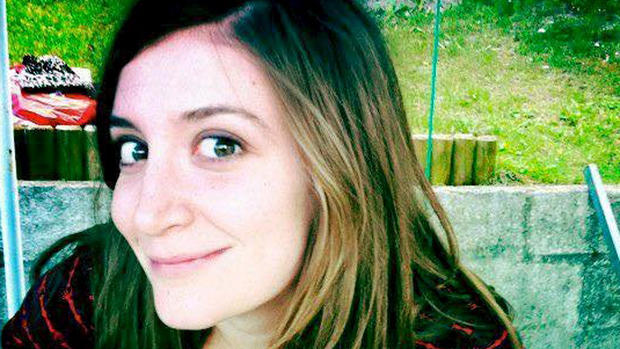Injuries from Paris attacks will take long to heal
As stories continue to be told by survivors of the terrorist attacks last Friday night in Paris, the physical and mental health of those who narrowly escaped death are on the minds of many.
French officials reported that in addition to the 129 people killed in the attacks, 368 people were wounded. As of Thursday morning, 195 victims were still in the hospital, 41 of them in intensive care, with three listed in critical condition.
For those injured by the gunfire or bombings, it may take many weeks, months, and even years to heal, said Dr. Ryan Stanton, an emergency physician and spokesperson for the American College of Emergency Medicine.
He said victims of the violence most likely experienced a range of different kinds of physical injuries depending on where they were and what type of weapons were unleashed nearby.
Gunshot wounds
The majority of those wounded in Paris were victims of gunfire, as the attackers fired Kalashnikov automatic rifles methodically into the crowds.
"With penetrating trauma -- most of our city emergency departments are used to dealing with this type of wound, though maybe not on the scale of Paris," said Stanton, who has not been involved in the treatment of any of the Paris victims. In these types of cases, "We look for the initial injury and then look for where the bullet ended. Did it go in the abdomen and out the chest? It can go in the upper body and end up in foot via a vessel."
He said those patients typically end up needing surgery to find "the track" -- where the bullet went in and what it destroyed on its path through the body.
The type of bullet and type of ammunition can also determine the severity of the injury. "If the bullet is easily accessible, it's removed, but if it's lodged in a bone, we leave it," Stanton said.
In the United States, he said mass shootings have often involved a combination of rifles and pistols.
"The big risk of firearm-related injuries is that down the road there is always the risk of secondary infection, especially if someone was shot in the bowel. Scar tissue can also affect functionality down the road, the spleen, the liver," he explained.
Blast injuries
In Paris, those who were close to one of the suicide bomb explosions may face different types of trauma.
"Blast injuries typically are associated with concussions, or trauma to the ears, lungs, chest, and occasionally the abdominal area," Stanton said. In such cases, "We see a lot of shrapnel wounds, and amputations, lacerations -- both blunt and sharp penetrating -- from materials in bombs or from the area around a bomb."
Blast injuries are usually worse when a bombing occurs inside an enclosed space, he told CBS News. There's more trauma to the body because people can be thrown against walls and objects. When the victims of the Paris attacks were treated in emergency medicine settings immediately after the attacks, Stanton said medical experts likely went through a series of body checks.
"The first thing we look for in emergency medicine, other than actually penetrating objects, is in the ears," said Stanton, who is also medical director for Lexington Fire and EMS, in Lexington, Kentucky.
"If the tympanic membrane in the ear is ruptured, we know they had enough exposure to a blast wave that it could have caused internal injuries," he said.
He said physicians will also look for chemical exposures after such events.
In any blast site, Stanton explained, some illnesses related to chemical exposures -- burning plastics and other materials -- show up much later, sometimes years down the road, in the form of lung problems and even cancer, for example.
Also, he said the amount of smoke and dust stirred up at a blast site can lead to problems that are more chronic in nature, often respiratory. "The types of injuries often experienced by rescue workers," Stanton noted. "We're just now starting to see 9/11 symptoms in some people with chronic lung disease."
In Paris, he said it's likely that "the vast majority [of blast victims] will have some kind of sensitivity -- asthma, coughing, eye irritation. As long as it's just environmental, those symptoms will typically resolve over time."
Emotional trauma
All of the Paris survivors will likely walk away with mental scars in the weeks and months ahead -- even those who did not incur physical wounds -- said Penn Medicine trauma psychiatrist Dr. Steven Berkowitz.
"The vast majority of those who survived, almost all who survived the event, will have some form of psychological impact," Berkowitz told CBS News.
Some may struggle for years to cope with the trauma they experienced, and a number of factors may affect the toll it takes on them. "Not only how close you were physically to the violence, but did you know somebody who was killed? Was somebody hurt next to you or killed next to you? Was somebody you loved killed? That's very important," he said.
A person's mental health history also helps determines how well they'll cope with the emotional trauma of the attacks, Berkowitz said. For example, someone who was previously in a bad car accident and suffered symptoms of trauma is much more likely to have a difficult recovery, he said.
Individuals with histories of maltreatment, those who are struggling with a current psychiatric issue, such as depression or anxiety disorders, are also more vulnerable and likely to develop symptoms after an event like this, said Berkowitz.
"The expectation is that the majority of people will be symptomatic for a couple weeks and that most of them will eventually return to their baseline level of functioning," he said.
But a large percentage, possibly up to 30 percent, will continue to have symptoms, Berkowitz said. "Whether they meet criteria for full-blown PTSD or not, they will have symptoms that will impair their functioning," he said.
They may not even have any other major symptoms, he said, but they may continue to have traumatic nightmares a few times a week that interfere with their functioning and well-being. Or some people may have intrusive thoughts about what happened and treatment may be necessary, Berkowitz said.
Some studies show cognitive therapy after the first couple of weeks can enhance recovery, he added.
"The key thing is they need to be monitored in a supportive fashion for symptoms," said Berkowitz. "One of the big things that everybody needs to be aware of -- friends and family -- is that the most common post-traumatic response is substance abuse. For people who find themselves drinking more, drinking to fall asleep, that's a sign that they're not managing well."
He said loved ones can try to help them realize this is a reaction to what they experienced and that drugs and alcohol are not going to be helpful, and will actually make things even worse.
Seeking out a mental health provider is a good idea in the first days and weeks after a traumatic event, he said.
"We know in the early days after something like this, the most important thing is social support. And that's kind of complicated because the PTSD reaction is to withdrawal and isolate. For lots of reasons -- for depressive reasons and there is this cognitive stance of 'nobody can understand.' But friends and family need to be present and available, even if it's just quietly so."

